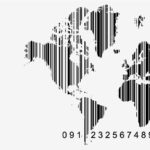Eight terms you need to know about foreign trade
The trade finance or foreign trade activity accompanies people and businesses in their activity importing/exporting goods and services, mitigating the risks that exist in international commercial relations and simplifying the settlement of operations. The same commercial transaction can require different solutions over time, depending on the moment at which it takes place and the role of the parties involved (importer or exporter).

Each stage of a commercial transaction has its particularities. The manufacturing period, the transport of products or the post-sales phase of goods require specific arrangements, as well as the bidding, award and execution phases in the case of international projects.
Here we share some key concepts to understand the trade finance activity.
1. Country risk: Indicator that weighs the likelihood of a country defaulting on its payment obligations corresponding to either the capital or interests on its foreign debt. The higher the risk level of a country, the greater the probability it will default on the financing granted as a result of reasons such as suspension of the transfer or currency convertibility, expropriation or contractual non-fulfillments when the counterpart is a public organization.
2. ICC: The International Chamber of Commerce, a non-governmental organization whose purpose is the promotion and self-regulation of international trade. With members and affiliates in more than 130 countries, it carries the voice of international businesses to intergovernmental organizations such as the United Nations and the World Trade Organization. The ICC has developed a broad number of rules, regulations and other resources for international trade, including the Incoterms, the rules for Uniform Customs and Practice for Documentary Credits (UCP), the Uniform Demand Guarantees Rule (URDG), the International Standby Practices (ISP 98), contract models and the International Court of Arbitration, to name a few.
3. Correspondent Bank A bank, normally of another country, which conducts operations on behalf of another. These operations are usually reciprocal, can have exchanged accounts and provide service to commercial transactions. An institution’s correspondent bank network, together with its branches and/or subsidiaries in other countries, allows accompanying customers in their foreign trade operations wherever they may require.
4. Documentary credit or letter of credit (L/C): A method of payment issued by the importer’s bank, whereby it commits to honor the drafts or otherwise pay, against the presentation of certain documents of the exporters that must meet the terms and conditions required in the credit within a specific period of time. The letter of credit adds security to international commercial transactions, as it allows subjecting payments, guaranteed by a financial institution, to the fulfillment of a series of milestones previously specified in the documentation.
5. Bank guarantee: Contract between a bank, which acts a guarantor and the beneficiary, whereby the former commits to pay a specific amount in accordance with a series of stipulated conditions. If it is on first demand, the bank undertakes to pay against the first written demand submitted by the beneficiary. In trade finance operations, it is common practice for banks of the beneficiary’s country to issue guarantees, which require a counter-guarantee from the originator’s bank. The types of guarantee frequently required in foreign trade operations are those linked to public bids and projects – bidding (bid bond), faithful performance (performance bond) and advance payment (advance payment bond), to name a few.
6. Contingent credit, standby letter of credit (SBLC): This type of letter of credit is used more as a safety mechanism (bank guarantee) than as a method of payment. The beneficiary obtains payment against the presentation of some written statement indicating that the originator has met its contractual obligations.
7. ECA, Export Credit Agency: Export Credit Agencies are quasi-governmental institutions, backed by the state, created to support a country’s exports, facilitating financing – through insurance and guarantees to the financing institutions - and on some occasions through direct loans. BBVA has relationships with most of them CESCE (Spain), SACE (Italy), COFACE (France), HERMES (Germany), NEXI y JBIC (Japan), KEXIM and K-SURE (South Korea), and SINOSURE (China).
8. Buyer credit: Transaction typical of operations with ECA coverage, whereby the bank grants financing to the importer with a guarantee from the ECA of the exporter’s country covering default risks (based on both debtor-specific reasons and country risks) for a percentage that can reach 100% of the total financing